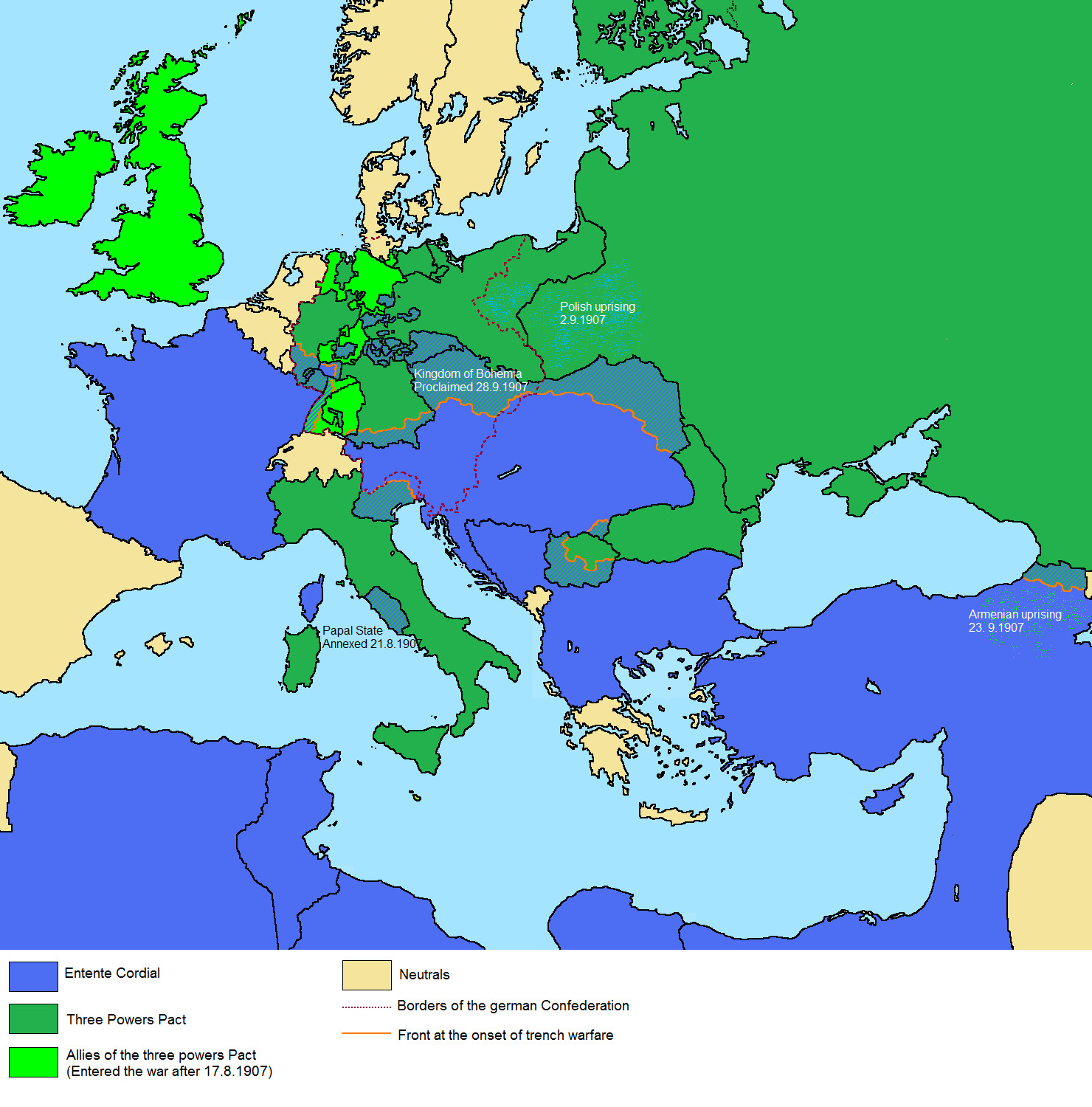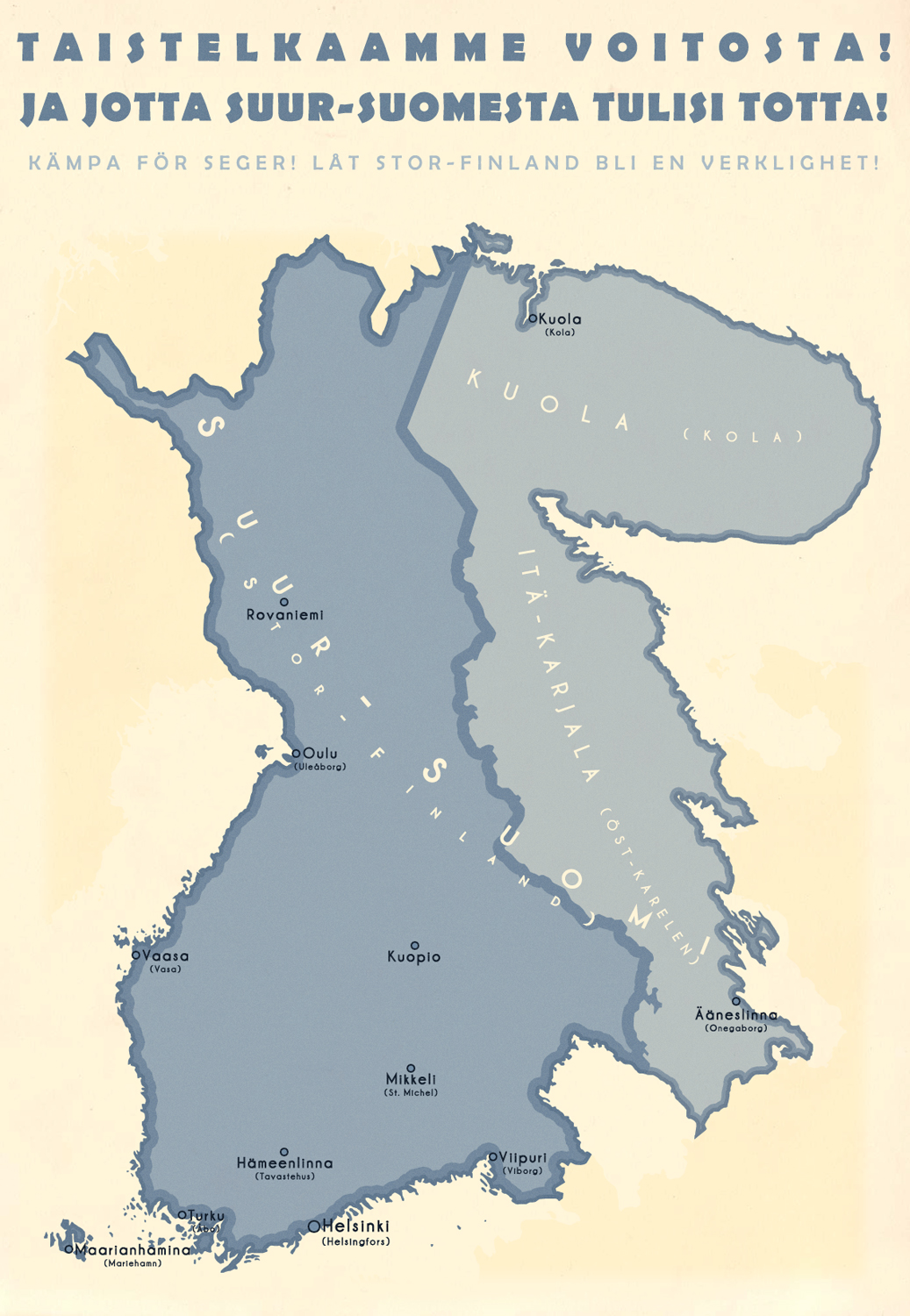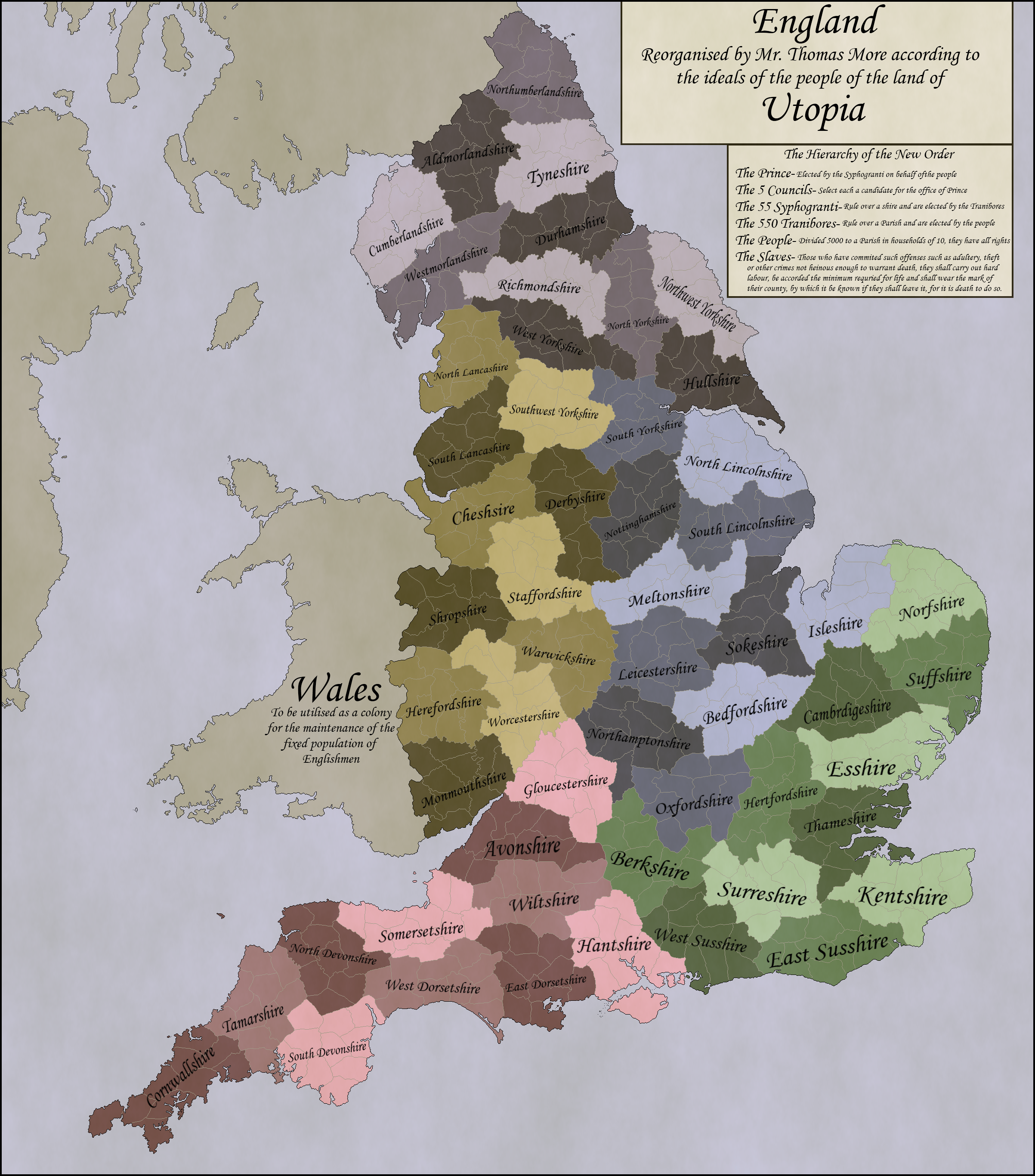Otherworld:
The assassination of Franz-Ferdinand occurred, but Germany did not go to war with France and did not invade Belgium. Russia, alone, suffered a quick defeat and released the Baltic Duchy. Austria-Hungary also annexed Serbia. In 1916, Polish rebels rose up. Austria-Hungary was reformed and became the United States of Greater Austria. In March 1916, a Republican government came in power. Three months later, a Civil War began, opposing the Russian Republic and the Fascist Leader Alexander Traïvanov.
In 1917, tensions occurred between France and Germany about Alsace-Lorraine. The war seemed to be imminent, but at the Milan Peace Conference, a solution was found : the creation of the Free State of Alsace-Lorraine, a state without army, under a dual personal union with the German Kaiser and the French President.
In 1920, a new war happened in the Balkans. Austria and Greece were the main victorious nations. In Russia, Traïvanov won the war and Russia became the Union of All the Russias. The United Kingdom, scared by the Austro-Germano-French alliance, created tensions between the two systems.
1923 was a very hard year for the people. As a consequence, communists and fascists revolutions happened in Europe. Communists took over Spain, Sardinia, Sicily, Crete, Cyprus and Malta. Fascists or ultra-nationalists took over Poland, Bulgaria, Denmark and Portugal.
Five years later, after a lot of international tensions, the "Regrettable Episode" occurred. The Greatest War was on.

The assassination of Franz-Ferdinand occurred, but Germany did not go to war with France and did not invade Belgium. Russia, alone, suffered a quick defeat and released the Baltic Duchy. Austria-Hungary also annexed Serbia. In 1916, Polish rebels rose up. Austria-Hungary was reformed and became the United States of Greater Austria. In March 1916, a Republican government came in power. Three months later, a Civil War began, opposing the Russian Republic and the Fascist Leader Alexander Traïvanov.
In 1917, tensions occurred between France and Germany about Alsace-Lorraine. The war seemed to be imminent, but at the Milan Peace Conference, a solution was found : the creation of the Free State of Alsace-Lorraine, a state without army, under a dual personal union with the German Kaiser and the French President.
In 1920, a new war happened in the Balkans. Austria and Greece were the main victorious nations. In Russia, Traïvanov won the war and Russia became the Union of All the Russias. The United Kingdom, scared by the Austro-Germano-French alliance, created tensions between the two systems.
1923 was a very hard year for the people. As a consequence, communists and fascists revolutions happened in Europe. Communists took over Spain, Sardinia, Sicily, Crete, Cyprus and Malta. Fascists or ultra-nationalists took over Poland, Bulgaria, Denmark and Portugal.
Five years later, after a lot of international tensions, the "Regrettable Episode" occurred. The Greatest War was on.











